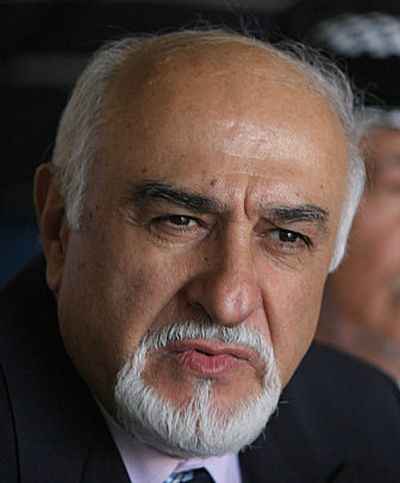Iraq’s Olympic chairman among 30 kidnapped

BAGHDAD, Iraq – Gunmen kidnapped the chairman of Iraq’s Olympic committee and at least 30 others Saturday in a brazen daylight raid on a sports conference in the heart of Baghdad. Armed clashes erupted elsewhere across the capital.
Parliament extended the national state of emergency as at least 27 people – including two American soldiers – were killed in sectarian or insurgency-related violence.
At about 1:30 p.m., gunmen in about a dozen vehicles pulled up outside the meeting of the Iraqi National Olympic Committee, police and witnesses said. They entered the conference center, blindfolded and handcuffed participants and bodyguards, hustled them into the vehicles, and sped away.
Those kidnapped included Ahmed al-Hijiya, chairman of the Olympic Committee, and the presidents of the tae kwon do and boxing federations, according to police Lt. Thaer Mahmoud. The bodies of two of the bodyguards were found later, dumped along a street.
The abduction came a day after Iraq’s national wrestling team withdrew from a tournament in the United Arab Emirates; the team’s Sunni coach was killed Thursday in a Shiite district of Baghdad.
It was unclear how many were kidnapped, though police officials placed the figure as high as 50. Other details also were unclear: Some witnesses said the attackers were masked and wore police uniforms. Others said the gunmen were unmasked and wore civilian clothes. Interior Minister Jawad al-Bolani denied any police involvement.
Nonetheless, the mass abduction illustrates the rapidly deteriorating security situation in the Iraqi capital, despite a much-heralded security plan for the city unveiled last month by Prime Minister Nouri al-Maliki.
Sectarian killings have been on the rise, and Iraqi politicians have complained that the police and army seem powerless to stop them. The violence has undermined confidence in al-Maliki’s government, which took office May 20, and in the capability of the U.S.-trained Iraqi police and army.
Parliament on Saturday approved a one-month extension of the state of emergency that has been in effect since November 2004. The emergency had been renewed every month by the prime minister, but the new constitution gives that power to the legislature.
The measure gives the government special powers to restrict movement and public gatherings as well as conduct searches and arrests.